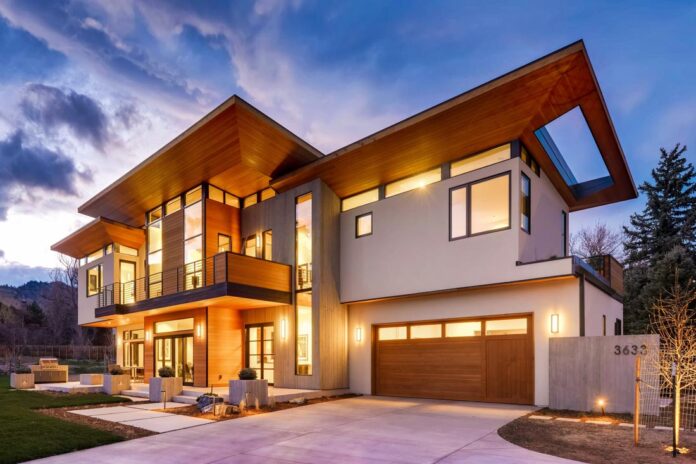Have you ever dreamed of creating your perfect space? With the right home design and construction plan, it is possible to turn your dreams into reality. In this blog post, we will provide a guide to custom home design and construction.
We will look at understanding what it means, researching building contractors, choosing the right materials, determining financing options, and keys to home building success. By the end of this post, you will have all the knowledge you need to build your perfect home.
Understanding Custom Home Design
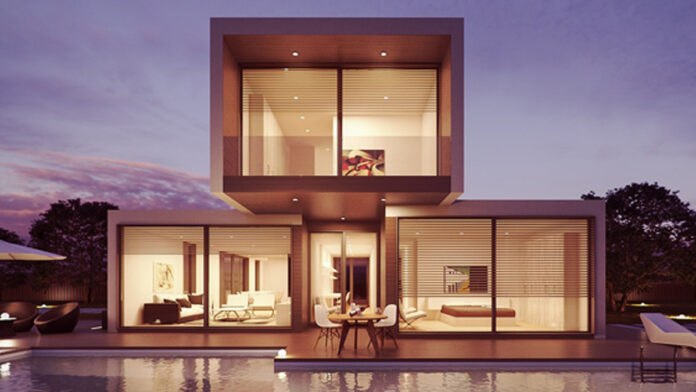
When it comes to achieving the perfect balance of function and aesthetics, nothing is better than a custom home design.
A custom home design takes into account your lifestyle and preferences, which allows you to maximize usage of space while still meeting your individual needs.
By taking these steps, you can create a space that is comfortable, efficient, and stylish all at the same time.
Another great benefit of a customized home design is budgeting for materials and labor costs. With a little research and planning, you can ensure that your project remains within budget – no matter how complex or expansive it may be.
Plus, by working with an experienced team of designers, you can ensure that your project meets all applicable local building codes and requirements.
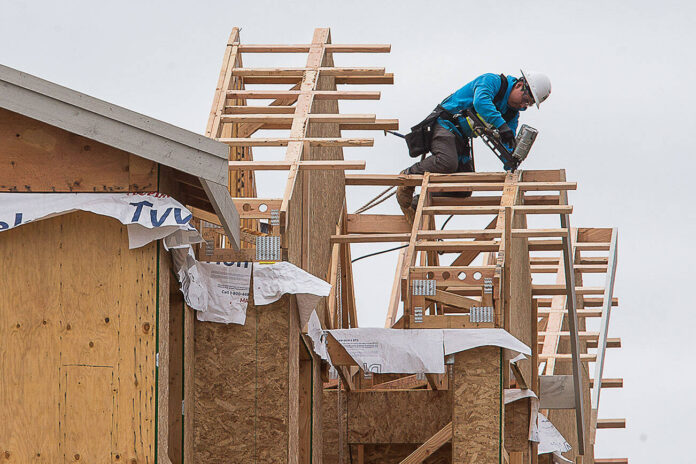
Finally, make sure to evaluate the value (functionality and aesthetics), determine if it is suitable for the environment where it will be placed (safety), and select the right style(s) for your desired aesthetic (modern/traditional).
Once all this information has been gathered, it is time to begin designing your perfect home!
Researching Building Contractors
When you’re ready to start building your dream home or office, it’s important to research the best possible contractor.
- First and foremost, it’s essential to do your homework. You need to evaluate their experience (both recent and overall), read reviews from other customers, and gather any references that they may have.
- Choosing the right building contractor is a critical step in ensuring the success of your custom home project. You’ll want to work with a reputable and experienced contractor who can understand your vision, provide valuable guidance, and deliver quality workmanship.

Source: unsplash.com - When researching building contractors, consider their credentials, portfolio, and client reviews. If you’re in the Lincoln, Nebraska area, you may want to check out Lincoln Nebraska home builders. These builders have a track record of delivering exceptional custom homes that meet their clients’ expectations.
They also have the expertise and knowledge of the local market, zoning regulations, and building codes, which can help streamline the construction process and ensure compliance with all requirements. - When it comes to negotiating contracts or dealing with delays or budget overruns – things that happen often in construction – know your rights! Here are some tips for avoiding common mistakes made by homeowners:
- Make sure you have all of the documents necessary before starting negotiations – including copies of permits if needed.

Source: ofa.on.ca - Negotiate everything in writing.
- Make sure you understand what is being offered and what is non-negotiable.
- Stay organized throughout the entire process so that any questions or problems can be quickly resolved.
Quality Building Supplies For Home Design & Construction
Building a custom home is a big investment, and it’s important to choose the right supplies and materials for the job. By choosing quality building supplies, you can ensure that your home will last for years – and look great while doing it.
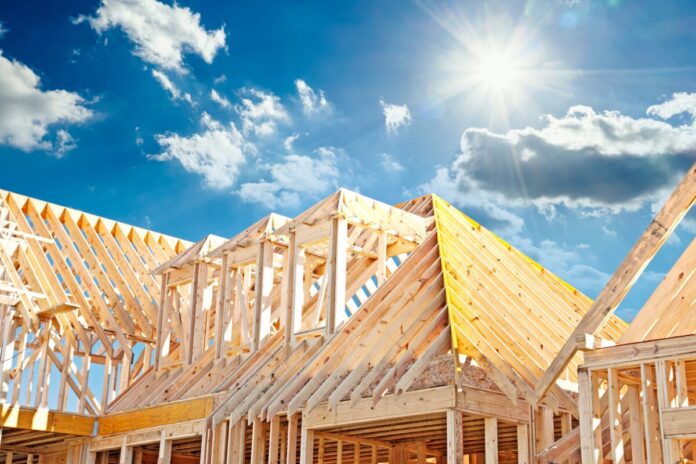
- First, custom home design and construction can be a great way to get exactly what you want in your home. By working with an experienced builder, you can ensure that all of your specifications are met – from the layout of the rooms to the color of the walls.
This means less wasted time and money later on down the road when you need to make changes or additions to your home. - Another advantage of using custom design and construction is that you can customize the interior of your home specifically to your needs. This can include adding features such as an extra bedroom or bathroom, changing flooring or wall color, or adding unique touches like elevated ceilings or beams.
By making these changes yourself, you’ll be able to save money on renovations down the road while ensuring that your home looks just how you imagined it would look. - When designing your own home, it’s important to use innovative materials and techniques that are currently available on the market. For instance, using reclaimed wood instead of traditional lumber is a sustainable option that offers many benefits compared to traditional construction methods.
Plus, by using innovative materials in your project, you’re likely to achieve a higher level of quality than if you use more conventional building supplies.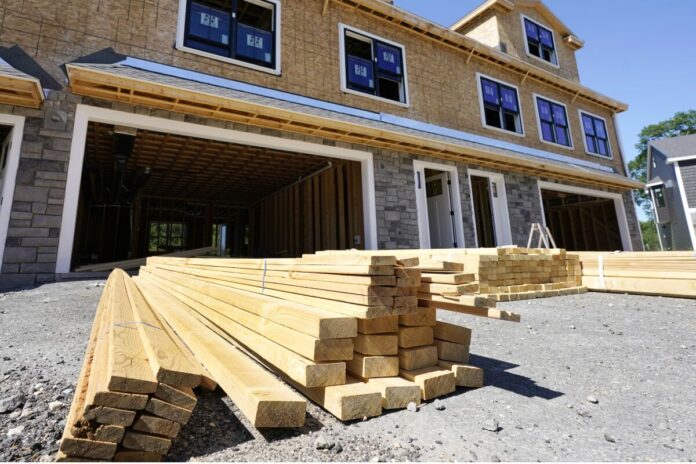
Source: sandiegouniontribune.com - Finally, when budgeting for custom home design and construction projects there are many factors that must be considered including location; size; layout; the number of levels/rooms; amenities/features desired; etc.
To make sure that everything goes according to schedule and budget while still achieving high-quality standards requires careful planning ahead by both the homeowner and builder/contractor team, something which too often does not happen in today’s go-go world economy!
Determining Financing Options
When you’re ready to build a custom home, there are a number of costs and financing options to consider. Traditional financing options like mortgages and home equity loans can be very expensive, so it’s important to research all of your available options. Here are some of the most common financing methods for custom homes:
- Pre-approval: This is the simplest option and involves talking to a lender about your project before you actually start construction. This way, the lender can get an idea of what you’re planning on building and how much it will cost.
- Conventional loans: These are loans that are used for regular residential construction projects. They might not be ideal for a custom home because they come with higher interest rates and require a down payment.

- FHA loans: These loans were created specifically for people who want to buy or build a custom home. They have lower interest rates than conventional loans and don’t require any down payment or pre-approval, making them an ideal option for people with low credit scores or limited money saved up in case of emergencies.
- VA loans: These are similar to FHA loans but they’re issued by the government rather than private lenders. This makes them more affordable since the government pays back the loan in full rather than charging interest over time as banks do.
- Specialty financing solutions: There are many different types of specialty finance solutions that aren’t typically offered by traditional lenders, such as solar power mortgages or green mortgage loans. It’s important to speak with several different contractors and lenders to find the best solution for your specific project.
All In All
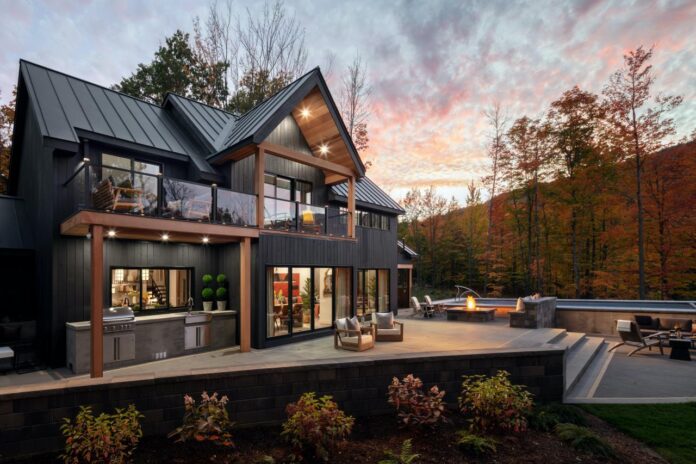
With careful planning and consideration of all available options, you can build your dream home without breaking the bank. So, what are you waiting for? Start researching now to get on your way to creating your perfect space!

